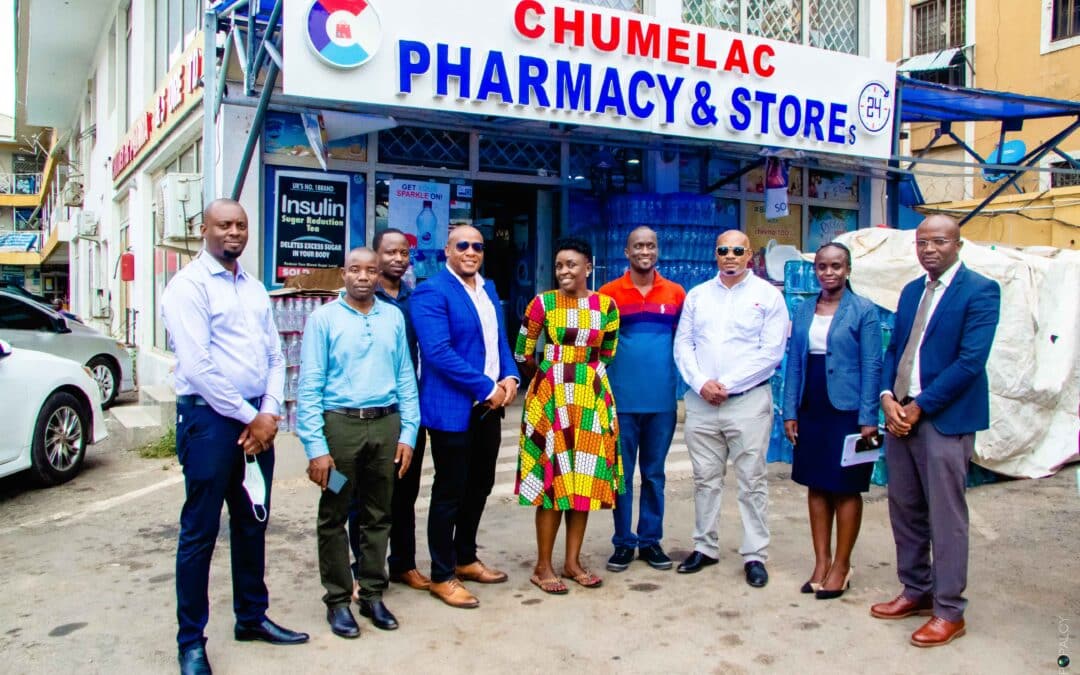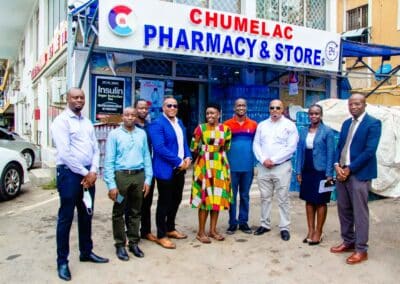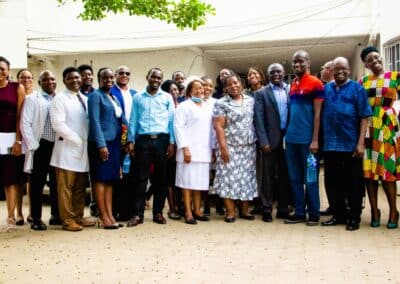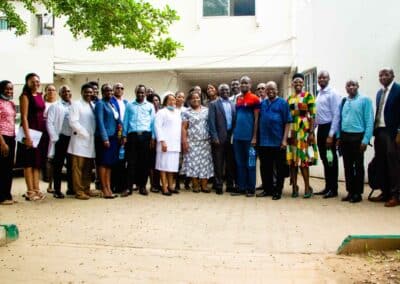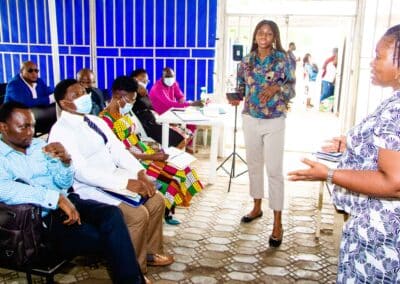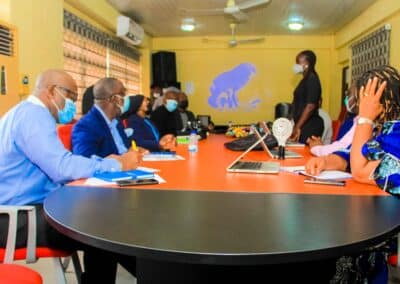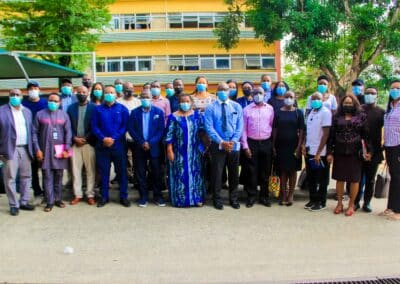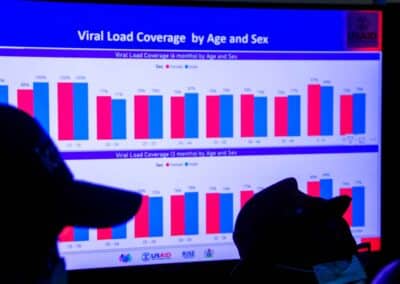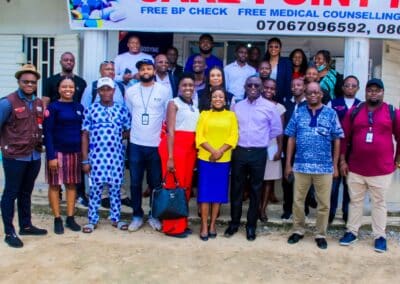“The purpose of the visit was to benchmark Nigeria’s approach to designing, implementing, and monitoring a community ART program that includes community pharmacies to improve Tanzania’s treatment outcomes,” said Mastidia Rutaihwa, MD, DSD coordinator for MOH Tanzania. She noted that distance to health facilities is a critical barrier to continuity of care for people living with HIV and that moving services closer to the community is expected to enhance retention and treatment outcomes.
From May 8 to 13, 2022, Nigeria’s National AIDS and STI Control Program of the Federal Ministry of Health hosted the team from Tanzania, which included the heads of Care, Treatment, and Support, the Strategic Information Unit, and the Pharmaceutical, Laboratory Supply Unit with the Tanzania National AIDS Control Program (NACP). Other participants from the Tanzania NACP included the DSD focal person and the Community-based HIV/AIDS focal person. In addition, representatives from the Tanzania National Council of People Living with HIV (NACOPHA) and the Tanzania Department of Defense also participated in the visit.
The team made site visits to pharmacies in Abuja and Akwa Ibom State.
According to Dr. Rutaihwa, the Tanzania team appreciated the model, which includes both self-forming community ART groups and access to ART refills at private pharmacies. The Tanzania team also liked that Nigeria’s MOH had actively engaged recipients of care in implementing the community pharmacy refill model.
Following the visit, Tanzania plans to review its national DSD policies to include a community pharmacy model, which the Tanzania MOH will pilot in selected regions over the next 12 months, before a nationwide scale-up. Tanzania will also develop monitoring and evaluation tools, training packages, standard operating procedures, and other interventions to implement the new model.


